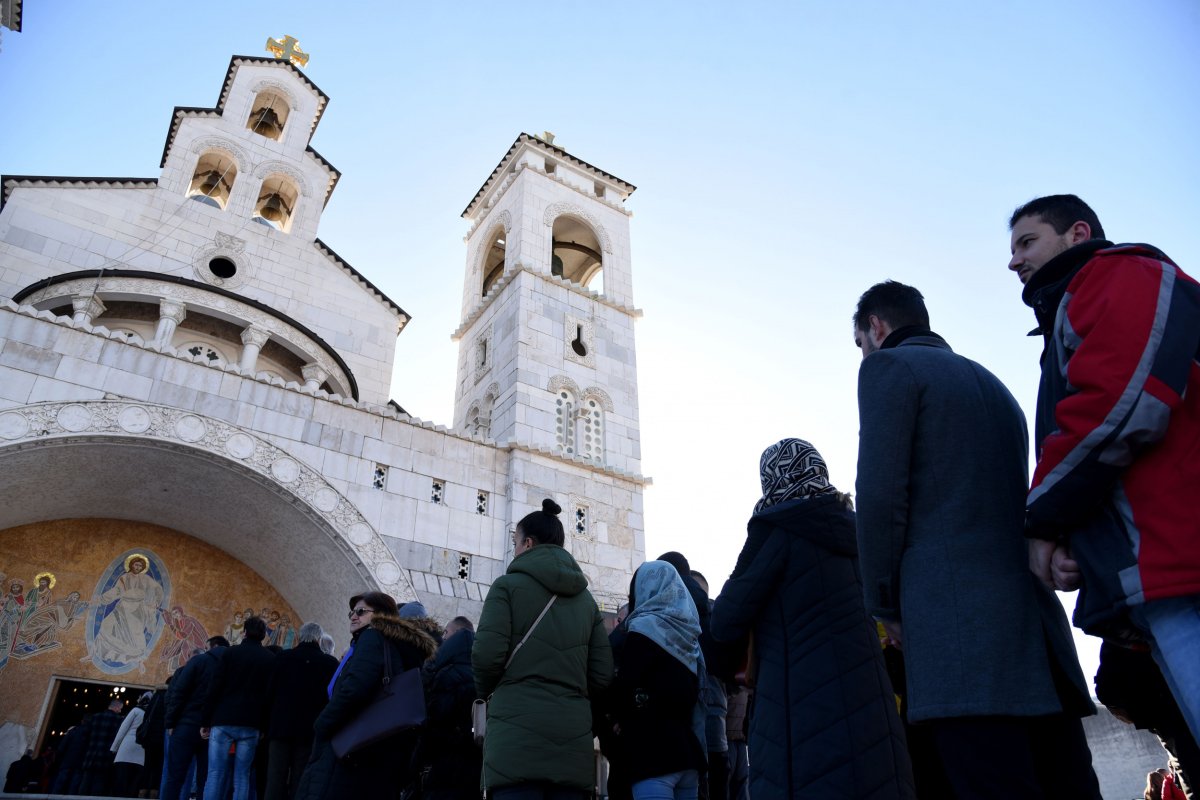We may sit on opposite sides of the British House of Commons, divided by party and the great issue of Europe. Yet we stand united by our Christian faith—and our conviction that all have the right to freedom of thought, conscience and religion.
The liberty to worship is a fragile thing. That freedom must be defended and protected everywhere. We both know, from personal experience, the pressures of reconciling our faith with politics—and that is in Britain, where views on religion and belief are considered enlightened.
That is why, last year, we both welcomed the bishop of Truro's report for the U.K. Foreign and Commonwealth Office, outlining a new, robust foreign policy stance to counter Christian persecution and committing the British government to fight full-throttle for the freedom of Christians worldwide.
Today, that fight has come closer to home than most realize. In a small country in Europe, barely a thousand miles from Britain, Christians and their clergy are being threatened, beaten and incarcerated for seeking to defend their faith and their right to worship in the manner of their choosing. One of their bishops has written of his arrest, along with hundreds of others, and how tens of thousands of the faithful have taken to the streets to defend their church and freedom of expression.
Last December, the government of Montenegro forced a new "Law on Religious Freedom" through its parliament, arresting opposition MPs opposed to its passage. A state-issued license is now mandatory to practice religion; faith communities' assets require state registration, with government appointees made the decision-makers over all religious property disputes, and no recourse provided via the courts.
This decision flies in the face of modern, democratic parliamentary norms, the rule of law, property rights and the rights of individuals to practice their faith before God and without state and politicians serving as intermediaries.
When some 80 percent of Montenegrins are followers of the Serbian Orthodox Church—the 800-year-old Balkans branch of Christian Orthodoxy—it becomes a discriminatory law for Christians, its property measures a case of "Grand Theft Altar."
We know this to be true, for Montenegro's administration—led by the same man and party for an unbroken 30 years—has a reputation. Those few who have cared to shine a light do not like what they see: corruption, the downgrading of Montenegro's status from new democracy to hybrid authoritarian regime, the smothering of political opposition and the silencing of journalists.
President Djukanovic has benefited and been too easily accepted through a lack of scrutiny by Western powers. His shift from acolyte of Slobodan Milosevic to European Union aspirant with no discernible intervening period should have raised suspicions. His naming as Person of the Year in Organized Crime and Corruption, described as "a lifetime achievement award" by the bestowing NGO, even more so. But it did not. Instead, he was welcomed into NATO.
Perhaps Montenegro was considered too small and too distant from the greater challenges of global politics to focus more than fleetingly on its paucity of good governance. Yet by challenging the rights of Christians, Djukanovic has put his country on the map. And now, in debt to the Chinese, and with a 30-year-long rule to extend, there appears no cash on hand to oil the wheels without recourse to property confiscation.

It is important for Britain and her allies to act, and in haste. In recent days, with further arrests of Christians, including the metropolitan archbishop and head of the church in Montenegro, more priests and medical doctors rallying in their support, the destruction of buildings at a monastery and a police assault on opposition politicians, it is clear the authorities do not intend to pause.
But choices have consequences. We should not stand by and allow political avarice to ascend the right to freedom of faith. There must be a reckoning.
NATO's commitment to the citizens of Montenegro comes without question, just as it does for all peoples in the Alliance. But this should not be the same for a country's political leadership when it contravenes its Treaty conventions to defend the "common heritage and civilization of their peoples, founded on the principles of democracy, individual liberty and the rule of law".
Britain may assist, in concert with other leading contributors to the Alliance, to cauterize cooperation with those politically responsible. Technical assistance can be blocked, bank accounts can be frozen and travel can be denied. And no British government resources should be given that may benefit, directly or indirectly, those responsible for creating and implementing this assault on Christians and the church they choose.
Instead, the British government may consider opening the John Bunyan Fund for Freedom of Religion and Belief and the wider Magna Carta Fund for Human Rights and Democracy to assist those locally in Montenegro who are reporting and defending the right to free thought and conscience.
If we are to fight the good fight and defend the rights of Christians worldwide, there is no excuse for us to stay silent, play deaf and do nothing when attacks on the faithful are underway in Europe.
Tim Farron MP is former leader of the Liberal Democrats. Steve Baker MP is a Conservative MP and former chairman of the European Research Group.
The views expressed in this article are the writers' own.
Uncommon Knowledge
Newsweek is committed to challenging conventional wisdom and finding connections in the search for common ground.
Newsweek is committed to challenging conventional wisdom and finding connections in the search for common ground.
About the writer
To read how Newsweek uses AI as a newsroom tool, Click here.








